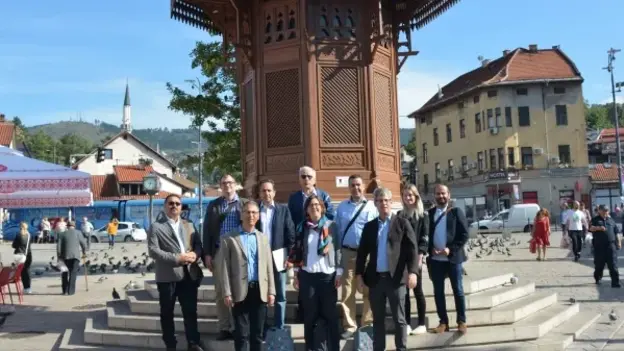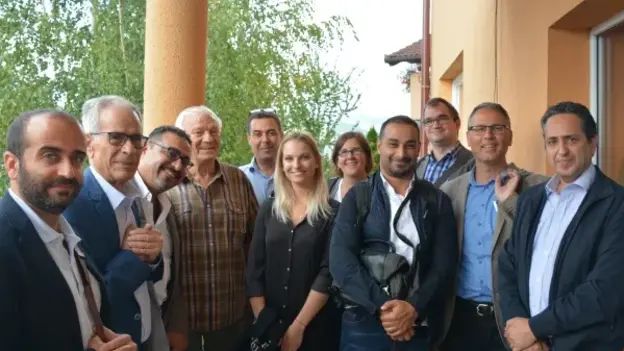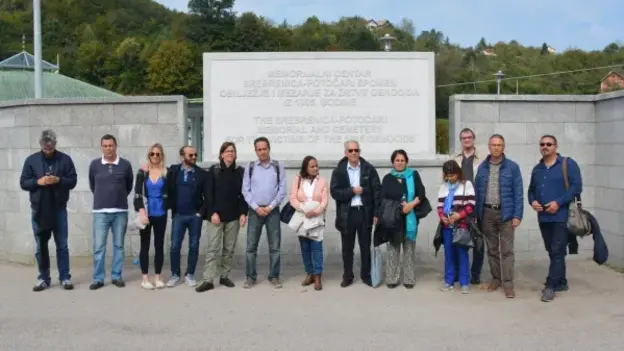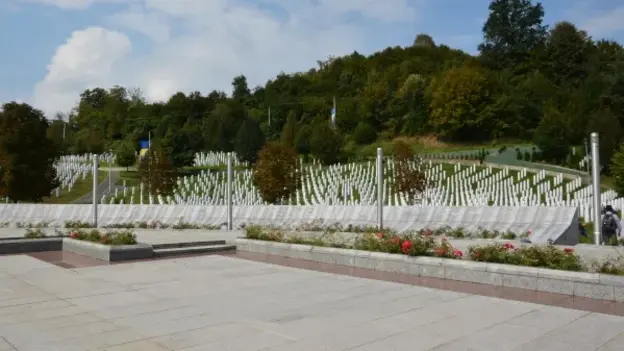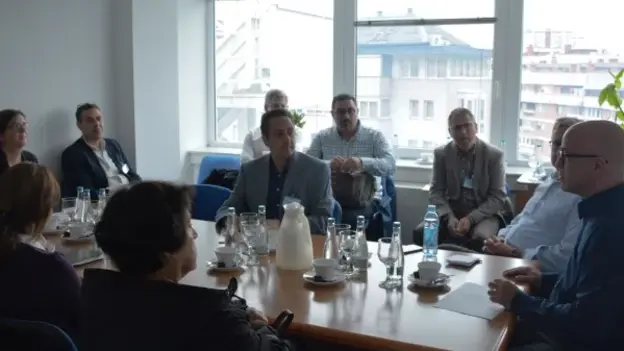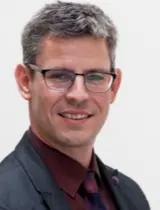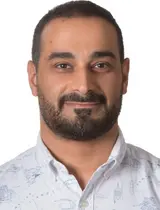Working Group Meeting
Lessons on Reconciliation from Bosnia and Herzegovina
Workshop
The civil war in Bosnia and Herzegovina from 1992-1995 was the bloodiest conflict in post-World War II Europe, with an estimated 100,000 dead and 2.2 million displaced. Many of those who got expelled as refugees have not returned until today, and even more than 20 years after the end of the war people seem not to be satisfied with the results of the political system established after the war.
Many of these experiences are similar to (ongoing or former) conflicts in the Middle East and North Africa. The four-day workshop was meant to learn lessons from the Bosnian case through an exchange of experiences and ideas between Bosnian representatives of politics, media, law or civil society and scholars from Lebanon, Libya, Iraq, Jordan, Syria, Tunisia, Yemen, Germany and the UK.
In Sarajevo, the group learned about the ethnic and religious segregation of the country which has rather been reinforced than dissolved by the political system established with the help of the international community after the war. Experts from the media and the education sector such as Nidzara Ahmetasevic and Aida Becirovic explained what this means for media coverage and schools – at least three different overarching realities and versions of history are being told in a country of not more than 4 million inhabitants. Karsten Dümmel from the German Konrad-Adenauer-Foundation explained that the recognition of responsibility of war crimes by the various factions and measures of transitional justice are yet to come. The former general Jovan Diviak hopes to re-build the country through education but, as Darko Brkan from the NGO “Zasto Ne?” explained, the political elites seem to be mostly interested in securing their interests and power.
A visit to the memorial of the massacre in Srebrenica in which 8000 civilians were killed by pro-Serbian militias under the eyes of UN blue helmet troops showed the group the responsibility of the international community in preventing such conflicts and helping to solve them. A visit to the Office of the High Representative (OHR), the de-facto executive power of the international community in the segregated country, however, demonstrated the problems that are created by a divided stance of influential states such as the US and Russia.
Reviewing these inputs, the group discussed on its last day in an internal panel which lessons to learn from Bosnia and Herzegovina. The panelists agreed that context-specific measures need to be implemented that are to be negotiated by local stakeholders. Imposed rules seem only to help to end armed conflicts but are not a recipe for successful long-term reconciliation. The inputs from Bosnia and Herzegovina highlighted also the importance of education and media for reconciliation.
- Disciplines Involved
- Political Sciences, Media & Communication Studies, Arabic & Islamic Studies
- Venue
- Sarajevo, Bosnia and Herzegovina
- Project Title
- Learning Lessons on Reconciliation from Bosnia and Herzegovina
- Year
- 2018
- Funding Scheme
- Working Group Meeting
- Working Group
- Dynamics of Transformation
- Countries Involved
- Bosnia and Herzegovina, Germany, Lebanon, Libya, Iraq, Jordan, Syrian Arab Republic, Tunisia, Yemen, United Kingdom
